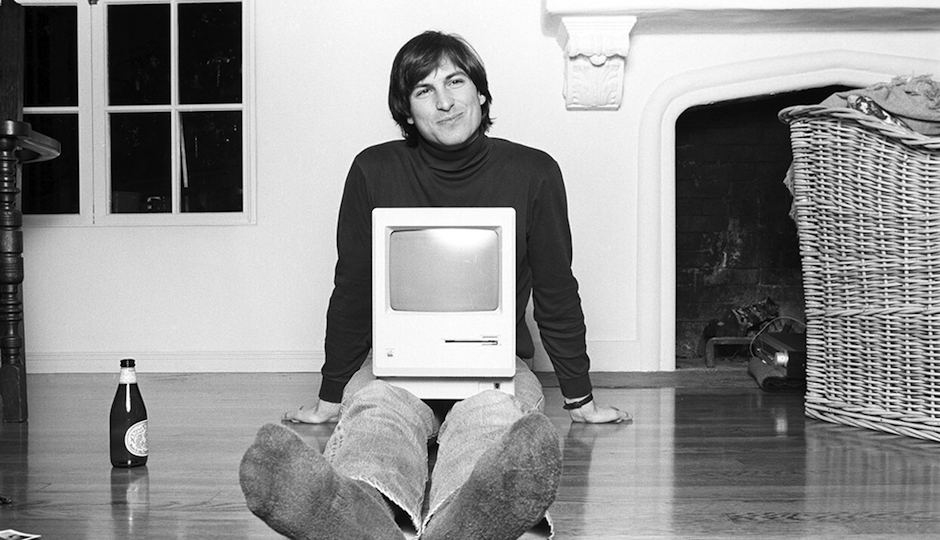REVIEW: Steve Jobs: The Man in the Machine

Photo from Magnolia Pictures.
Why is it that when the world learned of Steve Jobs’ death in 2011, complete strangers who never even knew him were overcome with tears?
This is the question director Alex Gibney poses to the audience at the beginning of Steve Jobs: The Man in the Machine, amidst shots of people leaving flowers at Apple stores, holding up virtual candles on their iPads, and mourning the loss of a man who seemed, before his cancer, invincible.
Having been in the process of working through Walter Isaacson’s dense biography of the co-founder of Apple, I admit that during the first half of Gibney’s documentary, I found myself filling in the blanks.
In a somewhat disjointed fashion, Gibney revisits the stories of some of the important people in Jobs’ circle for insight: Chrisann Brennan, the mother of his daughter Lisa, marketer Regis McKenna, and good friend and early employee Daniel Kottke, among others.
The film, through the various interviews, acknowledges that our view of Jobs has become that of a mythic being. Similar to other influential creators, like John Lennon, we have been willing to overlook his troublesome actions because of the powerful gifts he left us.
The strongest point of the film is Gibney’s exploration of the more questionable practices of Apple, from poor conditions in factories overseas, to tax evasion and backdated stock options. We also got a glimpse of just how far Jobs was willing to go for his vision.
Gibney manages to touch upon the things that made Jobs what he was, like his spirituality, his anti-establishment views, and his “reality distortion.” But the director seems to make the tech icon all the more of a mystery while trying to humanize him.
Gibney cannot offer us a clear answer to the question he seeks at the beginning of his journey, but he does invite us to reflect, as he has, staring into the dark screen of an iPhone.
Maybe Jobs meant so much to us because for once, we were inspired to be something greater. At the end of the day, Apple exists to make money. But it makes us believe not only that its products are a reflection of ourselves, but that we are special.
Perhaps that is why seeing the images on screen I could not help but weep myself, remembering the feeling of his loss and being inspired by a man who seemed to have the world at his fingertips.
While the documentary certainly can offer new insight, look elsewhere for the deeper story and its intricacies. It remains to be seen next month whether Steve Jobs, the film starring Michael Fassbender based on Isaacson’s biography, can do justice to both the book and Jobs himself.
In the meantime, I’ll be joining other Apple fans to get my hands on the new iPhone 6S next Friday, still allured by the dream of a man who the world refuses to forget.


